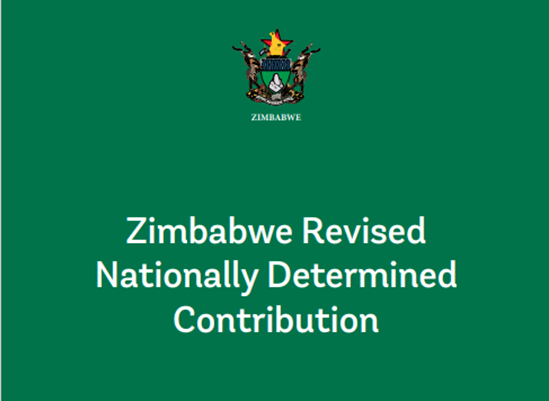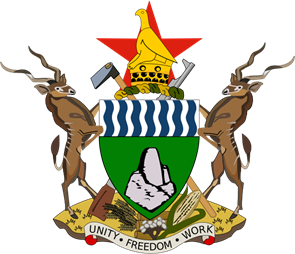Policies in Climate Action
CARBON CREDIT FRAMEWORK
This document outlines the regulatory framework for carbon credit trading, detailing the roles and responsibilities of various entities involved, the application and registration procedures for carbon credit projects, monitoring and verification requirements, and the allocation of proceeds from carbon trading. The regulations aim to ensure sustainable development and contribute to global efforts to reduce greenhouse gas emissions.
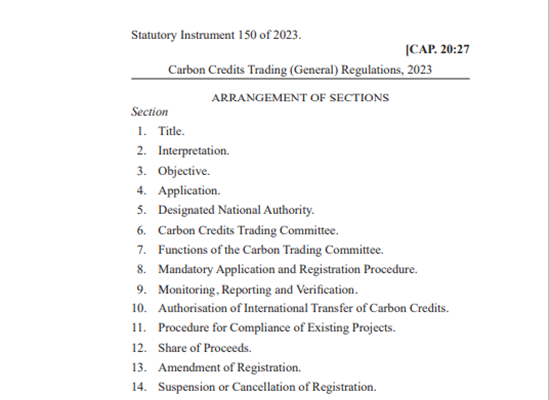
CONSTITUTION OF ZIMBABWE
This document details the comprehensive legal framework that governs the country. It includes provisions on the structure of government, the rights and duties of citizens, the operation of the legislative, executive, and judicial branches, and guidelines for local governance, public administration, and national security. The Constitution aims to ensure democratic governance, uphold human rights, and promote social and economic development.
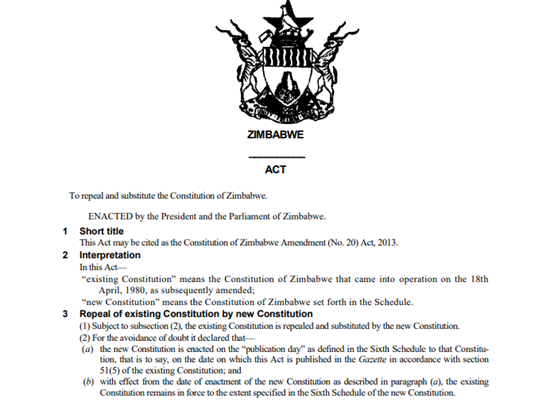
ENVIRONMENTAL MANAGEMENT ACT
The document you described functions as the rulebook for environmental protection in Zimbabwe, aiming to ensure a healthy and sustainable environment. It outlines the rights of citizens concerning the environment and assigns responsibilities to the Minister of Environment. The Act creates important organizations like the Environmental Management Agency (EMA) to oversee environmental matters and a National Environmental Council for guidance.
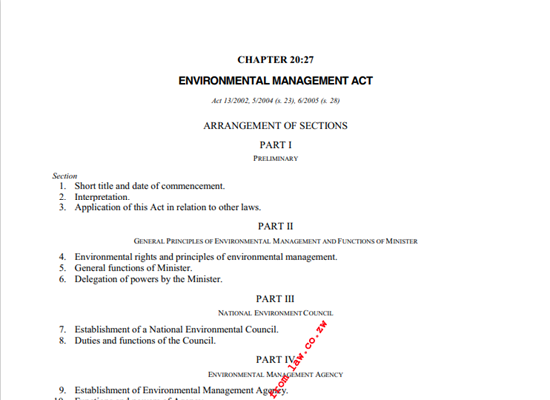
National Renewable Energy Policy
The National Renewable Energy Policy of Zimbabwe aims to promote the development of renewable energy sources to meet the country's energy needs sustainably. It sets targets for renewable energy capacity, provides incentives for investment in the sector, and addresses barriers to adoption. The policy aligns with the country's Vision 2030 to transform into an upper middle-income economy and emphasizes the importance of renewable energy in achieving economic and social development goals
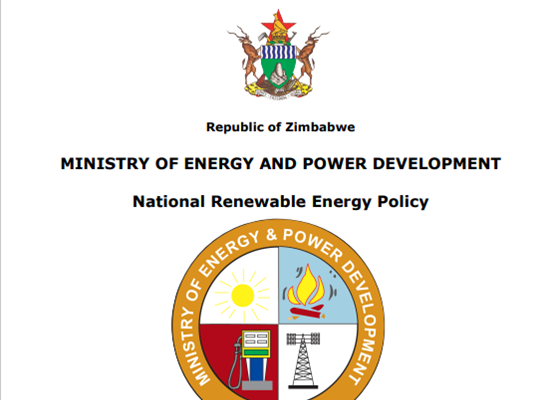
National Climate Policy
This document outlines Zimbabwe's strategic framework for addressing climate change. It provides a comprehensive approach to mitigation and adaptation, emphasizing the integration of agroecology in national climate actions. Key areas include documenting climate-related policies, identifying entry points for agroecology, and proposing strategies for integrating agroecological practices into national frameworks. The policy also covers the impact of climate change on Zimbabwe, such as rising temperatures and decreasing rainfall, and highlights the importance of a multi-stakeholder engagement in implementing climate responses.
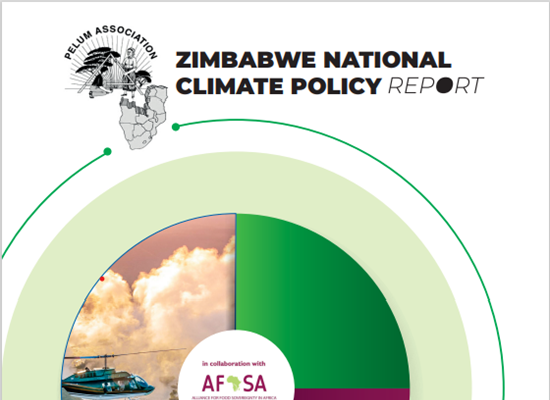
National Communication to the UNFCCC
This document is Zimbabwe's Fourth National Communication to the United Nations Framework Convention on Climate Change (UNFCCC). It provides an update on the country's efforts and progress in addressing climate change. The report includes information on national circumstances, greenhouse gas inventories, mitigation actions, and adaptation measures. It also highlights the barriers to climate change action and the institutional arrangements in place for climate change management.
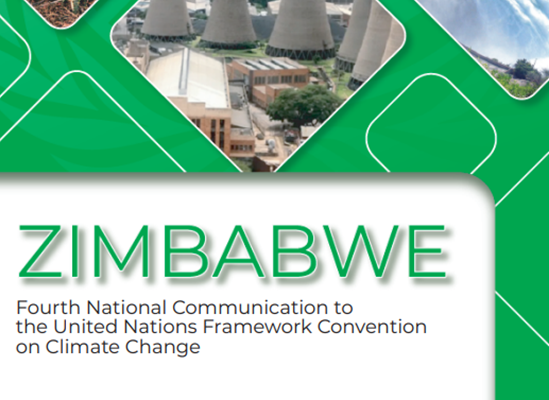
Zimbabwe Revised Nationally Determined Contribution
Climate change poses significant threats to the environment, societal well-being, and socio-economic development, making mitigation and adaptation essential. The 2015 Paris Agreement, adopted by Parties to the UNFCCC, aims to limit global temperature increases and requires countries to reduce greenhouse gas emissions through Nationally Determined Contributions (NDCs). Zimbabwe's first NDC, submitted in 2015 and ratified in 2017, has been revised to increase its emission reduction target from 33% to 40%, now covering multiple sectors.
